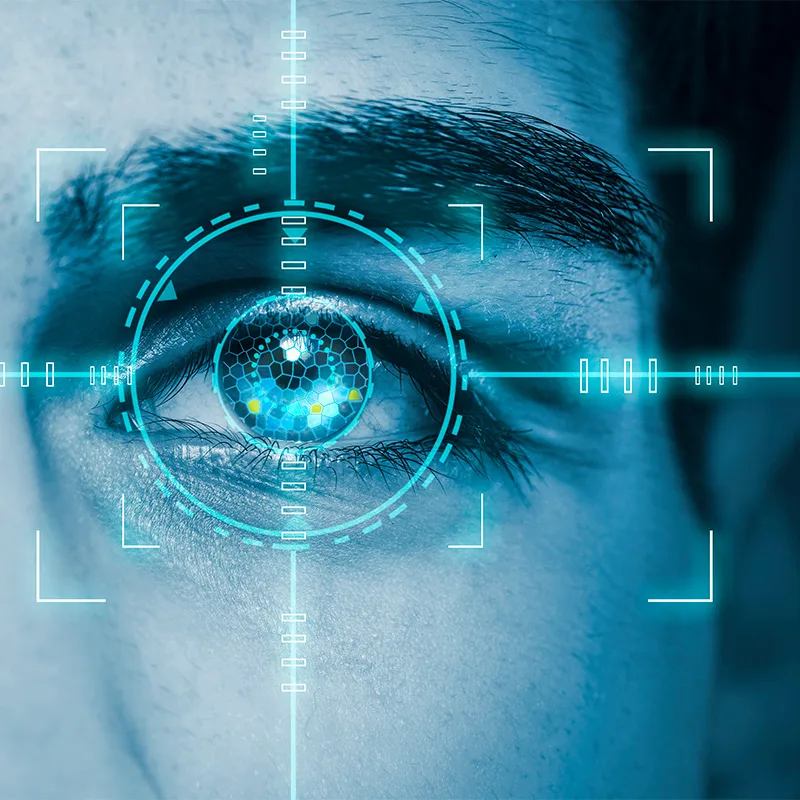Key takeaways
- The bill proposes a new U.S. federal property right to protect individuals against unauthorized highly realistic, digital replicas that use an individual’s voice or likeness
- Under the bill, all individuals (or their rights holders) would be granted the exclusive right to authorize the use of their voice and likeness in digital replicas
- If passed, the law would create the first nationwide harmonized right of publicity
Last week, U.S. lawmakers introduced the Nurture Originals, Foster Art, and Keep Entertainment Safe Act (more commonly known as the No Fakes Act). This bill has been hotly anticipated, particularly by the entertainment industry and, if passed, would represent a major reframing of rights of publicity in the United States. The latest version of the draft bill comes just a few days after the U.S. Copyright Office called for new legislation to regulate the use of digital replicas online in its recent report on digital replicas and their implications for copyright and artificial intelligence.
The proposed legislation would create a federal property right protecting individuals’ image, voice and likeness from unauthorized digital replicas. While some states recognize so-called rights of publicity, there is little harmonization across states and there are some states that do not have statutory or common law protections of an individual’s image, voice or likeness. Prompted by fears over deepfake technology and the desire to protect artists and creators from abuse, the bill would have far-reaching consequences.
We set out below a high-level summary of some of the key points arising from the draft bill and our initial observations:
- Intellectual property: The bill specifies that the rights it establishes are a form of intellectual property right. As further described below, the rights established by the bill share many of the same features as copyright (with a few notable exceptions).
- Digital replication right: The principal right established by the bill is for individuals (or rights holders) to have the exclusive right to authorize the use of their voice or likeness in a digital replica. There are a few interesting points to consider here:
- Definition of digital replica: The definition extends to “a newly-created, computer-generated, highly realistic electronic representation that is readily identifiable as the voice or visual likeness of an individual…”
- “Newly-created”: Does this mean that unauthorized replicas that were created before commencement of the law are exempt?
- “Highly realistic”: This appears to apply a fidelity threshold, but it remains to be seen how this will be interpreted and whether it means that stylized, exaggerated or heightened renderings would be caught.
- “Readily identifiable”: From whose perspective should this be assessed? Furthermore, to what extent would this capture lookalikes or soundalikes?
- The definition also includes a carveout for electronic reproductions, samples, remixes, mastering and digital remastering of recordings and AV works authorized by the copyright holder. While not entirely clear what the intent of this carveout is, it seems to permit copyright holders (such as record labels) to authorize digital replicas or altered performances that use copyrighted material that they own or control, and if left as broadly drafted as its current form, could lead to unintended consequences.
- Definition of individual: The definition extends to all human beings, both living and dead.
- The bill expressly establishes post-mortem rights (described further below), whereas the extent of such rights is currently determined at the state level and can vary significantly.
- The rights are granted to all individuals, not only to celebrities or people who make a living from their likeness or voice. This is further reiterated by a later clarification establishing that any right granted will not expire upon death “without regard to whether the right is commercially exploited by the individual during [their] lifetime.” This is particularly interesting since a number of territories limit protection in respect of rights of publicity to those whose image/voice is widely known.
- Definition of digital replica: The definition extends to “a newly-created, computer-generated, highly realistic electronic representation that is readily identifiable as the voice or visual likeness of an individual…”
- Non-assignable: Unlike typical property rights, such as copyright, the rights granted may be licensed (as discussed below) but not assigned during an individual’s lifetime. It is believed that this provision was introduced to protect artists and creators from having studios or labels leveraging their bargaining power to require the artists/creators to transfer their rights in perpetuity. This raises a number of questions:
- Can a living individual assign/sell their post-mortem rights to someone else to take effect immediately upon death or can the right only be bequeathed by will? The draft appears to suggest that such rights can be sold during an individual’s lifetime, but the language could benefit from clarification (for instance, the bill states that the right is transferrable “upon death”).
- What happens in respect of those individuals (both living and dead) who have already purported to sell or assign their image and likeness rights to a third party? Does the individual (or their estate) now benefit from these new rights to the detriment of the historic purchaser? In respect of deceased individuals, would this new right automatically transfer to the historic purchaser?
- Time-limited licenses: A living individual is only entitled to license these rights to a third party (either on an exclusive or non-exclusive basis) for a maximum period of 10 years. Licenses involving minors may only be granted for a maximum period of five years and in any case terminate once the individual reaches 18. In both instances, the license must include a “reasonably specific description of the intended uses of the applicable digital replica.” Furthermore, licenses involving minors must be approved by a court in accordance with state law.
- Such time limits do not apply in respect of licenses governed by a collective bargaining agreement that addresses digital replicas. Presumably this will enable unions such as SAG-AFTRA to negotiate more bespoke agreements on behalf of members.
- The bill clarifies that licensees may continue to use those digital replicas embodied in a sound recording, image or audiovisual work after termination/expiry of such a license, provided the use is consistent with the terms of the license.
- Post-mortem rights: The beneficiary of the individual’s post-mortem rights enjoys ownership for an initial period of 10 years from death. The right is renewable for additional, successive five-year periods (up to 70 years post-death) provided that the rights holder can demonstrate “active and authorized public use of the voice or visual likeness of the individual.” There are also registration requirements in respect of such post-mortem rights, with the Register of Copyrights appointed to administer such notices.
- The bill clarifies that licensees may continue to use those digital replicas embodied in a sound recording, image or audiovisual work after termination/expiry of such a license, provided the use is consistent with the terms of the license.
- Liability:
- The bill imposes civil liability on anyone who engages in the production of a digital replica without consent or who publishes, reproduces, displays or makes available a digital replica without consent, in a manner that affects interstate commerce.
- Liability is only triggered with knowledge; the person must have actual knowledge that the material is a digital replica and that it was not authorized.
It is not a defense to liability for the defendant to display or communicate a disclaimer to the public explaining that the material was unauthorized or that it was generated by AI. - Claims must be brought within three years from the date that the unauthorized use was discovered (or ought to have been discovered).
- Damages are calculated by taking the greater of an infringement value of between $5,000 and $25,000 per work and the actual damages suffered (including an account of profits).
- Injunctive relief and other equitable remedies are available.
- Punitive damages are available in the case of willful activity or where a defendant has acted with malice, fraud, knowledge or willful avoidance of knowledge.
- Recovery of attorney’s fees is available to (a) a prevailing plaintiff and (b) a prevailing defendant if a court determines the action against the defendant was not brought in good faith.
- Sound recording artists: A specific provision is included in the bill that states that, where the digital replica involves a recording artist, the artist’s exclusive record label may directly bring a claim for violation of the artist’s rights. It is unclear from the drafting whether such entitlement is in addition to (or instead of) the artist’s own right to bring the claim. This clause presumes that an exclusive record label would or should control these rights on an artist’s behalf pursuant to a recording agreement, whereas the extent to which such rights are granted a record label are typically negotiated on a case by case basis.
- Safe harbors: The bill proposes that online service providers can avoid secondary liability for hosting, linking or directing users to otherwise infringing content by implementing a notice and takedown procedure as long as the content is removed or disabled by the service provider “as soon as technically and practically feasible after receiving notice of a claimed violation.” Similar to the DMCA Safe Harbor, online service providers would be required to designate an agent to serve as the contact point for receiving reported violations of the statute and register such agent’s contact information with the Copyright Office. The bill also provides for penalties for false or deceptive takedown notices.
- Exclusions: In response to concerns over the rights being established undermining First Amendment freedoms, the bill provides carve-outs for “bona fide news, public affairs, or sports broadcast or account,” as well as documentary and historical uses, uses that are consistent with the public interest in commentary, criticism, satire or parody, and uses that are considered “fleeting or negligible.” Exceptions also apply for commercial and advertisement uses of digital replicas where the work so used or advertised is permitted by one of the foregoing exceptions.
- Preemption: The bill expressly preempts any cause of action under state law related to the protection of an individual’s voice or likeness rights in connection with a digital replica. However, an exception is made for state laws regarding digital replicas that are in place as of the beginning of 2025. Other exceptions to federal preemption include state laws specifically related to digital replicas depicting sexually explicit content, an election-related digital replicas, and laws regulating products or services capable of producing digital replicas. Notably, in the above-mentioned report on digital replicas, the Copyright Office recommended against federal preemption, given the well-established state rights of publicity and privacy, suggesting that “federal law should provide a floor of consistent protection nationwide, with states continuing to be able to provide additional protections.” However, the approach set out in the No Fakes Act does not fully align with this recommendation to avoid preemption arguments.
It is fair to observe that news of the bill’s introduction has been broadly well received by the entertainment industry, particularly the music sector, and the various stakeholders, from major labels, collection societies, artists and unions through to the Human Artistry Campaign.
It remains to be seen whether the Senate will pass the bill, particularly given the timing ahead of the election. That said, it comes at a time when the Copyright Office itself has warned that there is an “urgent need” for federal legislation to tackle AI deepfake technology, with copyright alone offering insufficient protection for individuals.
As the legislative process unfolds, stakeholders across the entertainment industry, legal professionals and digital rights advocates will closely monitor the bill’s progress. The enactment of the No Fakes Act could set a global precedent, encouraging other jurisdictions to adopt similar measures to protect individuals from the rapidly evolving threats posed by AI technologies. Moreover, the potential passage of this bill underscores the importance of continued legal innovation to keep pace with technological advancements.
In-depth 2024-168


